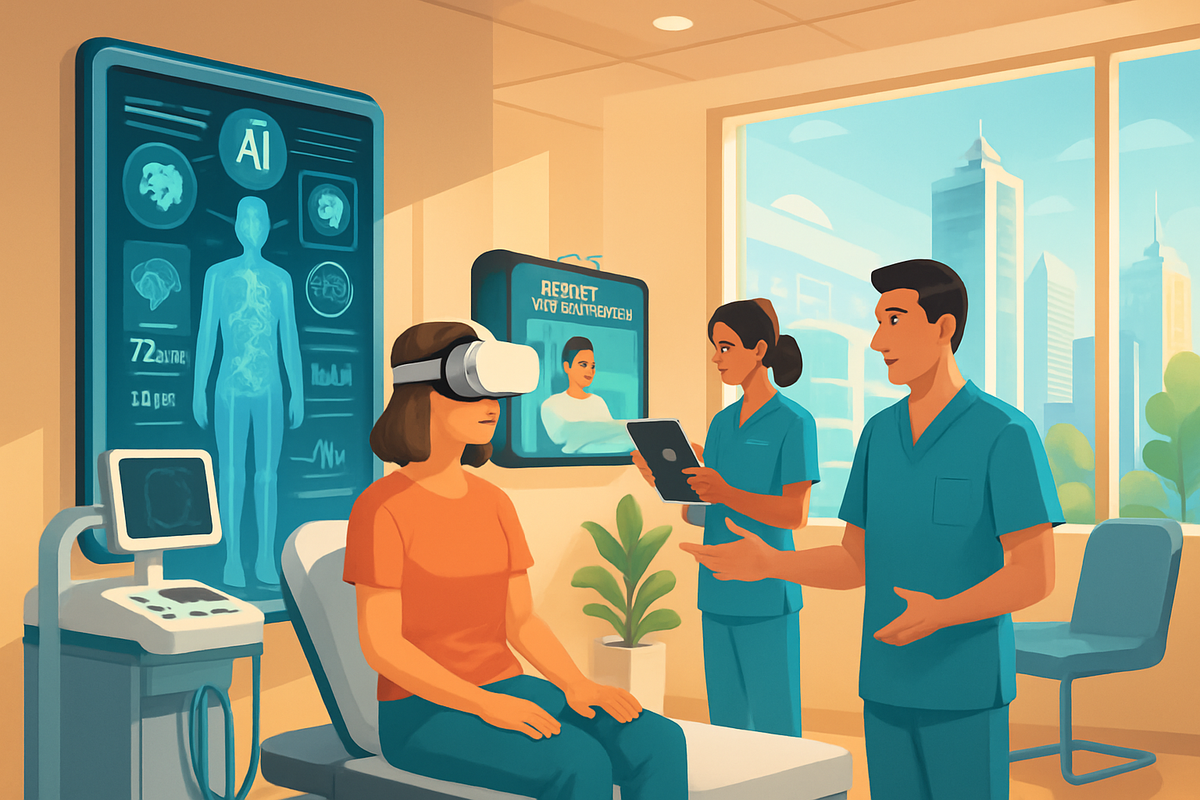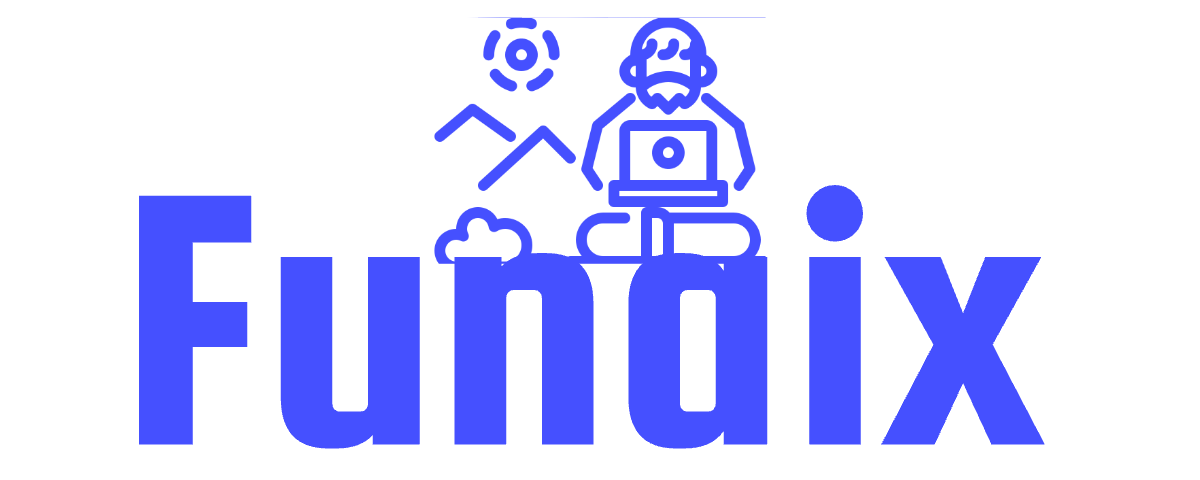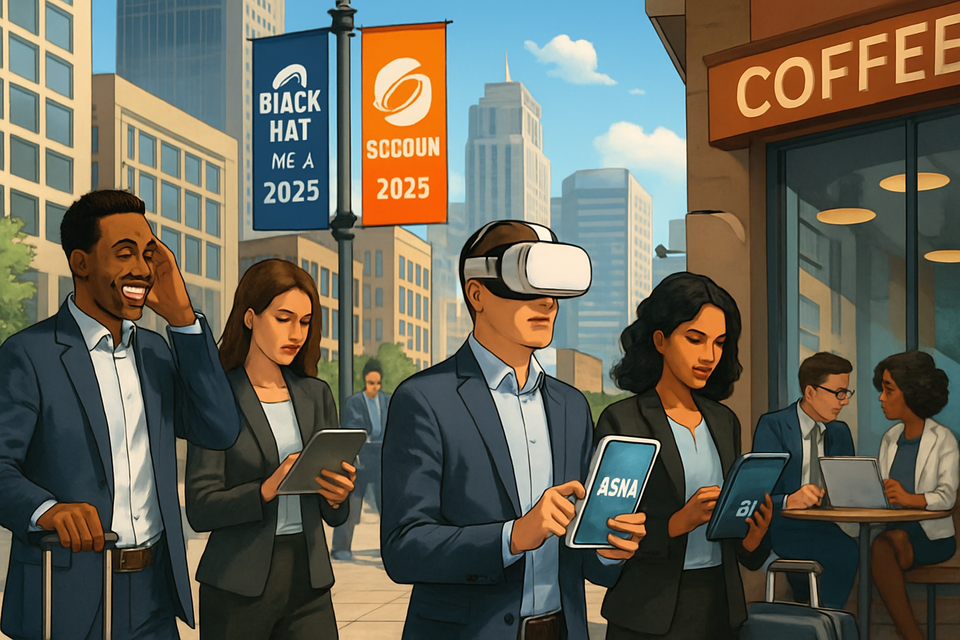The AI Doctor Will See You Now: How IoT Healthcare and Generative AI Are Rewiring Medicine in 2025
Embrace the future where IoT and AI transform medicine—predicting issues and personalizing care before you even step into a clinic. Discover how this high-tech evolution is reshaping healthcare with unprecedented precision and personalization.

The AI Doctor Will See You NowHow IoT Healthcare and Generative AI Are Rewiring Medicine in 2025By Funaix Editorial | August 17, 2025
Welcome to the Smart Hospital Era
Imagine a world where your watch spots a heart murmur before your doctor does. Where AI chats with you about your lab results at 2 a.m. And where your fridge—not your nurse—reminds you about your cholesterol. Welcome to medicine’s new golden age, powered by the marriage of IoT healthcare and generative AI. Spoiler: The future is now, and it's wearing a lab coat made of code.
"In August 2025, IoT healthcare saw a 163% surge in public interest. The AI doctor is officially in—and it’s not taking lunch breaks."
— Exploding Topics, August 2025
How IoT and Generative AI Are Transforming Healthcare
1. Remote Patient Monitoring: The Doctor Is Always Nearby
No more mad dashes to the clinic for every cough. IoT healthcare devices—think smartwatches, digital stethoscopes, and sleep oxygen monitors—track everything from your pulse to your pillow talk (well, almost). These gadgets beam real-time data straight to your care team, allowing doctors to intervene before small issues become big emergencies.
- Oura Ring and Apple Health now monitor sleep, heart rate, and stress, alerting patients and providers to subtle changes.
- Withings smart scales and blood pressure monitors send daily metrics directly to your health portal.
- Remote patient monitoring has seen a +335% growth rate, according to Exploding Topics.
2. AI-Powered Diagnostics: Sherlock Holmes Has Competition
Generative AI is revolutionizing diagnosis. These systems analyze mountains of data—lab results, imaging, even your medical history—to suggest likely diagnoses and treatment plans. In oncology and neurology, AI is already helping spot cancers and neurodegenerative disorders years earlier than traditional methods.
- AI-driven clinical decision support systems are now mainstream in smart hospitals for cancer and heart disease detection.
- Retinal imaging powered by AI can flag early signs of Alzheimer’s and Parkinson’s—sometimes before symptoms appear.
3. Personalized Medicine: Your Body, Your Algorithm
No two humans are alike—so why should our treatments be? Generative AI and IoT data enable hyper-personalized care, from medication reminders tailored to your sleep patterns to nutrition plans that factor in your genetic code. It’s like having a medical team in your pocket, minus the white coats and awkward small talk.
Who’s Leading the Charge? Startups and Health-Tech Trailblazers
- Forward Health: Blending advanced diagnostics with AI-driven personalized longevity plans.
- Sunfox Technologies: Smart cardiac diagnostics in your palm—especially for remote regions.
- Linus Health: AI and neuroscience for early detection of brain disorders.
- Mostly AI: Synthetic data generation for privacy-safe, bias-free healthcare AI models.
- Remote patient monitoring platforms: Providing real-time, actionable insights for chronic care management.
"The hottest startups in 2025 aren’t just making gadgets—they’re reimagining what it means to be cared for."
— Funaix Editorial
Real-World Success Stories
- Chronic Disease Management: Patients with diabetes are achieving better outcomes thanks to continuous glucose monitors synced with AI-driven dietary apps.
- Virtual Wards: Hospitals in India and the US are deploying IoT sensors for post-surgical monitoring at home—reducing readmissions and boosting patient comfort.
- Early Cancer Detection: AI-enhanced imaging at smart clinics has led to a 30% jump in early-stage cancer diagnoses, saving lives (and nerves).
The Big Ethical and Privacy Questions
All this data whizzing between cloud and clinic raises some eyebrow-arching questions:
- Who owns your health data? (Hint: It should be you, but double-check your app’s privacy policy.)
- How do we prevent bias in AI diagnostics? Diverse, representative data sets are key.
- Can AI be trusted with life-and-death decisions? Human oversight remains essential—AI is your copilot, not your captain.
The frontiers of AI medicine are dazzling, but vigilance is vital. As a wise philosopher (probably) once said: “With great data comes great responsibility.”
Actionable Guides: How to Get Smart (and Stay Healthy)
For Patients
- Choose reputable devices with transparent privacy policies (Apple, Withings, Oura, and Philips are leaders).
- Sync your data with your care team using your provider’s recommended platforms.
- Ask your doctor about AI-powered diagnostics—don’t be shy, they’re probably excited too.
- Stay curious: Subscribe to trusted news sources (like us!) for the latest in health-tech.
For Providers
- Invest in staff training for AI tools and IoT device integration.
- Prioritize cybersecurity and patient consent in tech rollouts.
- Collaborate with startups to pilot new solutions—today’s experiment could be tomorrow’s gold standard.
For Health-Tech Investors
- Track growth categories: Remote monitoring, AI diagnostics, and privacy-first platforms are sizzling hot.
- Evaluate regulatory compliance and ethical foundations before you invest.
- Stay nimble: The only constant in AI healthcare is change (and exponential growth).
What’s Next? The Future of Smart Care
As 2025 races ahead, expect to see:
- Home health pods that rival clinics in diagnostic power.
- AI-driven early warning systems for everything from pandemics to personal burnout.
- Privacy-first health data wallets giving patients full control.
- Virtual-first primary care for proactive, continuous wellness—not just sick visits.
One thing’s certain: The AI doctor will see you now, and it’s bringing a future of smarter, faster, and more personal care.
Join the Health-Tech Revolution
Want the inside track on tomorrow’s medical breakthroughs and digital wellness hacks? Subscribe to our blog for free and become a Funaix Insider: Join here. Only subscribers can read and write comments—plus, you'll get smart news, perks, and a front-row seat to the future of medicine. (Did we mention it's free? For now!)
© 2025 Funaix. All rights reserved.




